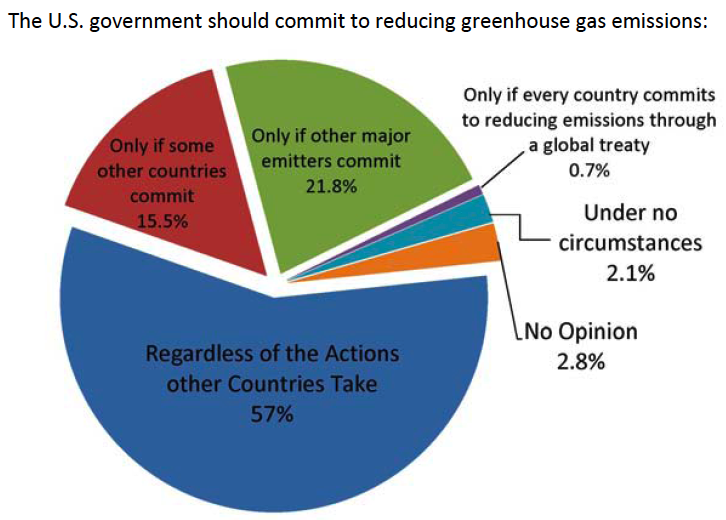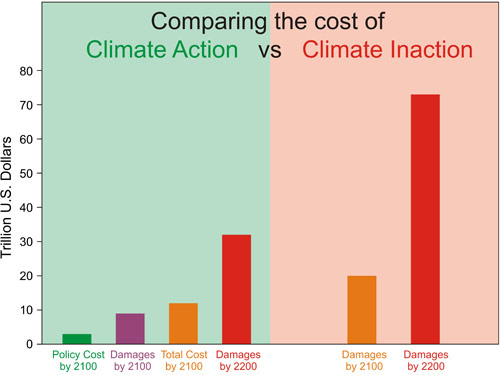Monckton, the Anti-Nurse
Posted on 27 September 2011 by dana1981
 Royal Society President and Nobel Laureate Paul Nurse recently wrote an article published in New Scientist lamenting the current general anti-science sentiment in the USA, particularly from politicians in the Republican Party. We certainly agree with Dr. Nurse's sentiments, and have said much the same in previous articles of our own (see here and here), and have even created a database of climate myths from politicians, which unfortunately, is full of quotes from Republican policymakers.
Royal Society President and Nobel Laureate Paul Nurse recently wrote an article published in New Scientist lamenting the current general anti-science sentiment in the USA, particularly from politicians in the Republican Party. We certainly agree with Dr. Nurse's sentiments, and have said much the same in previous articles of our own (see here and here), and have even created a database of climate myths from politicians, which unfortunately, is full of quotes from Republican policymakers.
 As we've come to expect from Christopher Monckton, he drafted a response to Dr. Nurse's article, using his standard Gish Gallop of climate myths. And as we've come to expect from Anthony Watts, he published Monckton's mishmash of myths and misinformation (try saying that five times fast) on his blog. The following day, Monckton and Watts responded to a commenter on the previous blog post, repeatedly referring to him as a "troll," including in the blog post title. So much for Watts' short-lived crusade against ad hominem attacks.
As we've come to expect from Christopher Monckton, he drafted a response to Dr. Nurse's article, using his standard Gish Gallop of climate myths. And as we've come to expect from Anthony Watts, he published Monckton's mishmash of myths and misinformation (try saying that five times fast) on his blog. The following day, Monckton and Watts responded to a commenter on the previous blog post, repeatedly referring to him as a "troll," including in the blog post title. So much for Watts' short-lived crusade against ad hominem attacks.
Gish Giddyup
As we do on Skeptical Science, we'll examine some of the claims made by Monckton in his response to Dr. Nurse, and see how they stack up against the body of scientific literature. Monckton attempted to be clever, using the text of Dr. Nurse's article, but replacing key statements with "skeptical" spin, or as he put it:
"Nearly all of this article was written by Sir Paul Nurse and published in New Scientist on September 14. With remarkably few changes, the present article comes to a legitimate conclusion opposite to that of Sir Paul. The New Scientist will not print it, of course."
Of course New Scientist would not print it, because as we will soon see, Monckton replaced Dr. Nurse's factual statements with a myriad of myths and misinformation of his own.
Economics Bizarro World
In the article, Monckton repeats his often-made but never-supported claim that
"experts...in the peer-reviewed economic literature, are near-unanimous that it is cheaper to pay for the damage arising from any global warming that may occur than to spend anything now on attempted mitigation"
Since he never supports this claim it's difficult to know what economic experts Monckton refers to. However, we must conclude they reside in some Bizarro World, since in our reality, economists with expertise in climate issues are in consensus that we should reduce greenhouse gas emissions, because doing so would benefit the economy relative to Monckton's preferred course of doing nothing and attempting to adapt to the potentially catastrophic consequences (Figure 1).

Figure 1: New York University School of Law Institute for Policy Integrity survey of economists with expertise in climate, results when asked under what circumstances the USA should reduce its emissions.
As with the consensus of experts on climate science (more on this below), the consensus of climate economics experts exists for a reason. Economic studies consistently show that the benefits of climate change mitigation through carbon pricing exceed the costs several times over (Figure 2).
Figure 2: Approximate costs of climate action (green) and inaction (red) in 2100 and 2200. Sources: German Institute for Economic Research and Watkiss et al. 2005
The Royal Society Climate Guide
Monckton also mangles reality in describing the Royal Society's changed Climate Guide last year:
"scientific leaders have a responsibility to expose the bunkum, not to perpetuate it...They need to be vigilant about what scientific societies are publicising about science in their name, as four Fellows of the Royal Society did recently in forcing a complete and now largely sensible rewrite of the Society’s previously extremist statement about climate science."
The prior version of the Royal Society climate guide was in no way "extremist." At the time, then-President Martin Rees wrote (emphasis added):
"We aim to provide the public with a clear indication of what is known about the climate system, what we think we know about it and, just as importantly, the aspects we still do not understand very well...It is three years since the Society published a document specifically designed to help the general public get a full understanding of climate change. Nothing in recent developments has changed or weakened the underpinning science of climate change."
The revised version of the Royal Society climate guide mainly placed more emphasis on clarifying what is well-known, and where uncertainties remain with respect to climate science issues. A few of the statements in the guide:
"There is strong evidence that the warming of the Earth over the last half-century has been caused largely by human activity"
"the risks associated with some of these changes are substantial."
"the overall climate sensitivity (for a hypothetical doubling of CO2 in the atmosphere) is likely to lie in the range 2°C to 4.5°C"
If Monckton would like to endorse these statements as "largely sensible," we would certainly agree. However, the Royal Society climate guide effectively contradicts all of Monckton's frequent myths and misinformation, so citing this document appears to be an unwise move on his part. Apparently Monckton is willing to admit that his climate claims are "largely senseless." We agree.
Misrepresenting China
Monckton appears to be ill-informed on international matters as well:
"The best scientists will head for the established leaders of science, such as the emerging powerhouses of China and India, whose leaders have realized that the climate scare has been more than somewhat oversold."
China in particular has expressed significant concern about the consequences of climate change, and plans to implement a carbon cap and trade system by 2015. Perhaps Monckton is right about the intelligent scientific leadership of China after all.
Inconvenient Consensus
Monckton also objects to Dr. Nurse's statement that politicians should not ignore the consensus of scientific experts regarding man-made global warming, though he does not explain why (presumably because the scientific experts are in consensus that Monckton is wrong).
Monckton Bunkum
In short, this article is more of the usual Monckton Bunkum. However, we have finally found some common ground with Monckton, as we concur that the Royal Society climate guide is "largely sensible." Which means we also agree that Christopher Monckton is largely not.
We also remain in agreement with Dr. Nurse's dismay at the general anti-science direction in the USA, particularly of one of the two dominant political parties. We will end by giving Dr. Nurse the final word (in his own words), and his edorsement of the Skeptical Science approach:
"scientific leaders have a responsibility to expose the bunkum. We scientists have not always been proactive about this. We need to be vigilant about what is being said in the public arena. We need to be vigilant about what politicians are publicising about science and take them on when necessary. At elections, scientists should ensure that science is on the agenda and nonsense is exposed. If that nonsense is extreme enough then the response should be very public."































 Arguments
Arguments
























 0
0  0
0






Comments